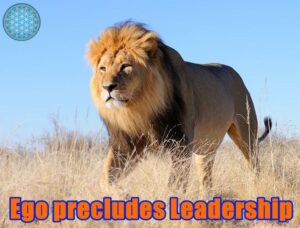
I asked people “What is a leader?”
Everyone described an individual who was guiding one or more people towards a specific outcome everyone wanted to achieve, often navigating challenges, obstacles and distractions.
What stood out most was that the outcome was a common and agreed upon objective for everyone, and the skill of the leader was to identify resources among the followers, and best integrate those resources to set and navigate the best path to achieve the unified outcome.
Leadership skills included critical thinking, decision making and communication skills (both listening and sharing). No one was looking for a leader that felt they knew all the answers, that didn’t listen to insights and suggestions from their team or followers, or someone who set their own objectives, out of alignment with the group’s.
Ego, is described in the dictionary, as a person’s sense of self-esteem or self-importance.
When I asked if they would prefer a confident-but-humble or a confident-and-arrogant leader, everyone chose the humble leader.
The difference between arrogance and humility is not a measure of confidence, but a measure of serving themselves (ego) or the cause (responsibility).
A humble leader believes in themselves, and also knows their limitations and appreciates the strengths of the team they are leading. They know their role as leader is to weigh all the options and craft the best unified solutions.
People may follow an appointed leader out of fear or desperation, but the best outcomes are achieved when they follow a leader whom they truly trust and believe to have their best interests at heart.
EGO is about self-interest, not the interest of the group and therefore is inconsistent with good LEADERSHIP, isn’t it?
As you consider your own style of leadership, as we ALL have areas of life when we are leading others, is your style leaning towards ego or service, and if you realise there is room for improvement, how will you change your style?
